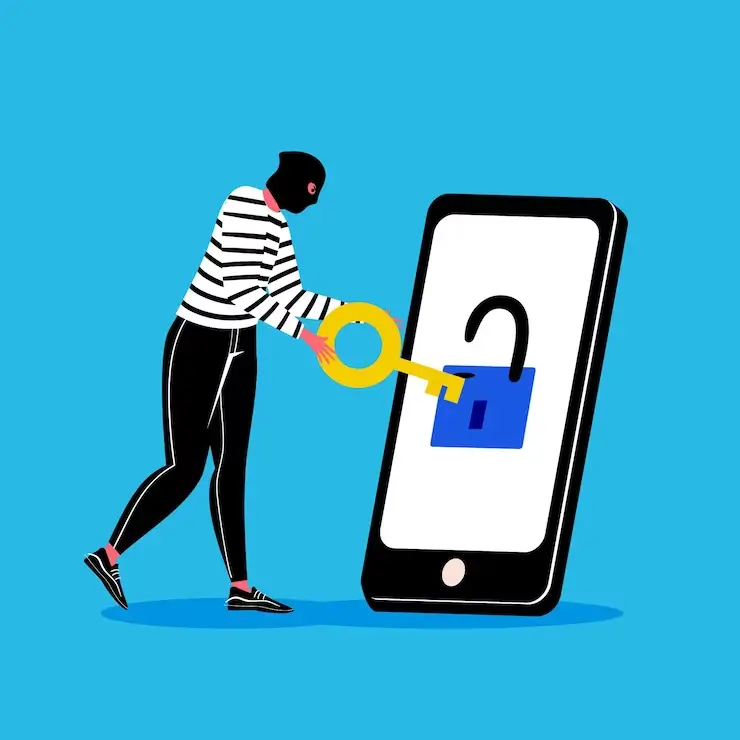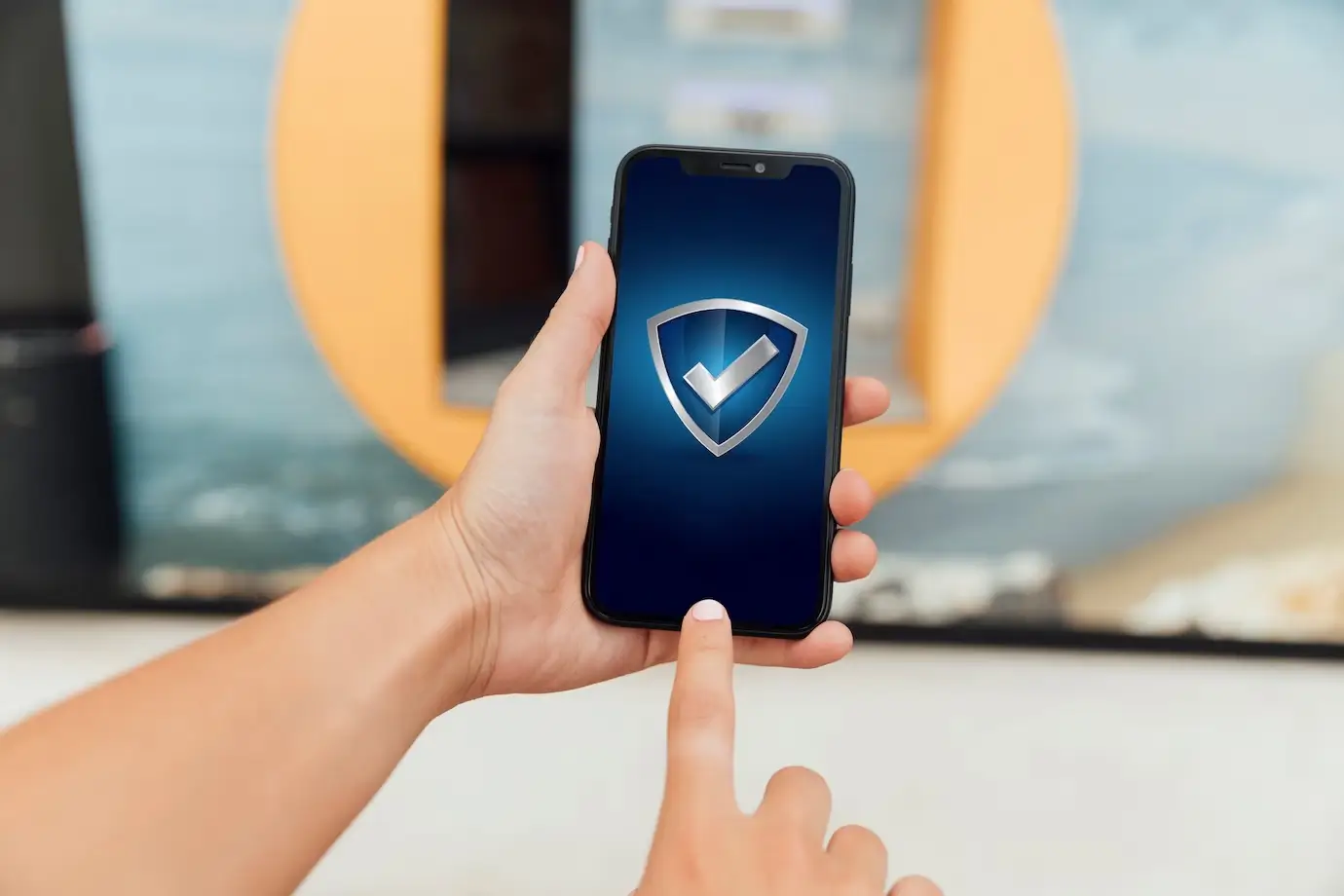We live in a world where almost everything we do is connected. We store our most important documents, photos, and banking information on our mobile devices. While these devices make our lives easier, they also put our personal data at risk. As technology advances, cybercriminals are becoming more sophisticated, making it even more important to ensure that our data is secure.
The good news is that there are steps we can take to protect our personal data on our mobile devices. Whether you’re an individual or a business, you must understand the value of data security and how to keep your data safe.
In this blog post, we’ll explore 6 ways you can keep your personal data secure when using mobile devices. We’ll cover a range of topics, from the basics of data security to the more complex aspects of it.
1. Log out of Your apps
With the rise of mobile devices and the convenience they bring, it’s become easier than ever to access social media, banking apps, and other online services from anywhere at any time. While being permanently logged in to your apps may seem convenient, it also puts your personal data at risk. Hackers are always on the lookout for ways to gain access to your personal information, and leaving your accounts open on your device makes it easier for them to do just that.
To keep your data secure on your mobile device, it’s important to log out of your apps when you’re not using them. This is especially important when you’re outside your home, as you may be more vulnerable to theft or loss of your device.
Logging out of your apps doesn’t have to be a hassle. Most apps have a simple “log out” button that you can click to close your session. If you’re using a public device, such as a computer in a library or cafe, be sure to log out of all your accounts before leaving.
Some mobile devices also have features that allow you to remotely log out of your accounts if your device is lost or stolen. This can be a lifesaver if you’re worried about your personal data falling into the wrong hands.
2. Refrain From Using Public Wi-Fi
While it may be tempting to connect to free Wi-Fi networks when you’re out and about, doing so puts your personal information at risk. Many security experts caution people against accessing public Wi-Fi because you can never be too sure about its security. Cybercriminals may install malware into your device, access your bank account and other financial-related apps, or even steal your identity to apply for loans or perform other criminal activities in your name.
The risks associated with public Wi-Fi are not just theoretical. There have been numerous high-profile cases of data breaches resulting from people using public Wi-Fi. For example, in 2016, hackers used a compromised public Wi-Fi network to steal $81 million from the Bangladesh central bank.
But it’s not just financial data that’s at risk when you use public Wi-Fi. Hackers can also gain access to your email, social media accounts, and other personal information. Just imagine if criminals used your identity to scam other people or your friends. Even if you can prove that you’re not responsible for illegal activities, you’re still bound to experience significant inconvenience if your identity is compromised. We recommended taking a family pack of mobile subscriptions in your home for saving money. Read the review of familieabonnement mobil ice (ICE mobile data) provider from Norway.
3. Always Update Your OS
It’s essential to keep your OS updated to ensure your data is secure. Phone and tablet manufacturers work hard to keep their devices secure, but no system is entirely foolproof. Criminals always find a way to get into operating systems, and once they do, they can gain access to personal data, including passwords, bank details, and other sensitive information. This is why device manufacturers frequently offer updates to patch up the flaws in their software.
Updating your OS is not only important for security reasons but also for the overall performance of your device. Updates often include bug fixes and improvements to the user interface, which can make your device run more smoothly.
So, how can you ensure that your OS is updated? It’s simple. Most mobile devices come with an option to check for updates automatically. If your device doesn’t have this feature, you can manually check for updates by going to the settings menu and selecting ‘software update.’ If an update is available, download and install it immediately.
Ignoring OS updates can lead to serious consequences. Hackers can exploit vulnerabilities in older versions of the OS to gain access to your data. This can result in identity theft, financial loss, and other serious issues.

4. Be Choosy With Downloads
When it comes to email attachments, it’s best to avoid downloading anything from unknown senders altogether. These attachments may contain viruses, trojan horses, phishing malware, and other harmful files that can infect your device and compromise your security. If you receive an attachment from someone you don’t know, it’s best to delete it immediately.
The same goes for mobile apps. Before downloading any app, make sure it’s from an official app store like Google Play or the Apple App Store. These stores have strict app review processes to ensure that the apps they offer are safe and secure for users. If you’re unsure about an app’s credibility, do some research on the developer before downloading. Look for reviews and ratings from other users, and check if the developer has a website or social media account that you can verify.
It’s also important to be aware of a technique called heap spraying that cybercriminals use to gain access to your device. This technique involves flooding your device’s memory with code that can exploit vulnerabilities and grant the attacker access to your device. To protect yourself from heap cybersecurity solution in dubai, be very careful with the developers you trust and make sure you only download from credible sources.
5. Use Strong Passwords
One of the simplest ways to protect ourselves is by using strong passwords. Unfortunately, many people still use weak passwords that are easy to guess. This puts their personal data at risk of being stolen or compromised. Using passwords like 1234 or your birth date may make them easier to remember, but it also makes it easier for hackers to break them.
To ensure the security of your mobile devices, it is important to use strong passwords. A strong password should be at least eight characters long and include a combination of letters, numbers, and special characters. This makes it much harder for hackers to guess your password and gain access to your data.
Another important step in keeping your personal data secure is to avoid using the same password for all your apps. If a hacker gains access to one password, they can easily access all your accounts. By using unique passwords for each app, you can prevent this from happening.
If you’re serious about your security, you may also want to consider changing your passwords regularly. This can help prevent hackers from gaining access to your personal data over an extended period of time. Read our previous article on 5 Features of Successful Mobile Banking Apps.
6. Keep Your Mobile Device Locked
In today’s world, mobile devices have become an essential part of our lives. We use them to communicate with our loved ones, work remotely, browse the internet, and more. However, many people seem to disregard the importance of keeping their mobile devices secure by simply locking them.
Locking your mobile device is the first line of defense against unauthorized access. By setting your mobile device to lock when not in use, you’ll prevent anyone from accessing your personal information, using your apps, or even selling your device. It’s a simple yet effective security measure that can save you a lot of trouble in case your device is lost or stolen.
In conclusion, securing personal data on mobile devices is crucial in today’s world. With cybercrime on the rise, it’s essential to take proactive measures to protect personal information. By implementing the six methods discussed in this article, individuals and businesses can take steps toward ensuring the safety of their data. Remember to regularly update your devices and software, use strong passwords, and be cautious when using public Wi-Fi. By following these tips, you can keep your data safe and secure.





